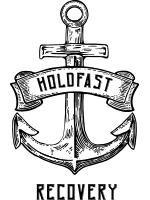
Prescription Drug Rehab in Prescott
Treatment for Prescription Medication Abuse in Arizona
Pharmaceutical drugs are prescribed to treat a variety of valid conditions. And while these drugs can have many positive effects, they also have a high potential of being misused or abused. Prescription drug abuse occurs when a person uses a prescribed medication in a way not intended by the doctor who prescribed it. This might include taking higher dosages of a prescribed medication or taking a medication for longer than instructed. It might also include taking other people’s prescribed medications or illegally purchasing prescription drugs from street sellers.
Due to the way many of these prescription medications affect and alter brain chemistry, quitting can be extremely difficult once the cycle of abuse and addiction has begun—but there is hope. Continue reading to learn more about our prescription drug addiction treatment programs or get in touch with us directly today.
We can handle all of the details so you can focus on your recovery. Call (800) 680-7738 or contact us online today to speak to one of our admissions counselors at our Prescott prescription drug rehab center.
Commonly Abused Prescription Drugs
While any type of prescription drug is susceptible to being abused, the most commonly misused medications are those that produce certain chemical changes in the brain, allowing the user to experience a high.
The most commonly abused prescription drugs in the U.S. include:
- Opioids: Opioids, also known as narcotics and painkillers, are pain-relieving medications prescribed for a variety of conditions. Opioids include medications containing both oxycodone and hydrocodone, including OxyContin®, Percocet®, Vicodin®, Norco®, tramadol, fentanyl, codeine, and morphine.
- Stimulants: Prescription stimulants are often used to treat conditions like attention-deficit/hyperactivity disorder (ADHD), insomnia, and similar issues. Because these medications are highly addictive substances, however, they also have a high potential for abuse. Commonly abused prescription stimulants include Adderall®, Ritalin®, Dexedrine®, and other methylphenidate-, dextroamphetamine-, and amphetamine-containing substances.
- Benzodiazepines: Benzodiazepines are a type of sedative commonly used to treat anxiety and sleep disorders. They are also highly susceptible to being misused, as they affect changes in brain chemistry. Common benzodiazepines include Valium®, Ambien®, Xanax®, Ativan®, and Klonopin®.
Symptoms of Prescription Drug Abuse
Outwardly, the signs that someone may be abusing prescription drugs depend on the type of drug being taken. Additionally, because drug addiction affects each individual uniquely, signs of abuse can vary from person to person. However, there are some universal symptoms of prescription drug abuse one can recognize both in him/herself and in loved ones.
These symptoms might include:
- Taking higher doses of a medication than prescribed
- Taking a medication for longer than prescribed
- Requesting early refills
- Illegally buying prescription medications
- “Losing” a prescription and requesting another
- Using someone else’s prescribed medication
- Stealing another person’s prescription drugs
- Visiting multiple doctors to obtain multiple prescriptions
- Feeling the need to build up a “backup” supply
- Unusual and excessive mood swings, irritability, and hostility
- Recklessness and/or impaired decision making
- Appearing unusually energetic, lethargic, or outwardly high
Depending on the type of drug being taken, other symptoms can range from confusion and drowsiness to impaired memory and loss of coordination to reduced appetite, agitation, anxiety, paranoia, and more.
How Is Prescription Drug Addiction Treated?
Though it can be difficult and even embarrassing to acknowledge that you have a problem with prescription drug abuse, being honest with yourself and others is the first step toward recovery. Remember, prescription drug addiction is not a weakness; it is a complex disease that very few are able to overcome without professional assistance.
The good news is that professional prescription drug treatment programs have been proven effective in helping individuals achieve short- and long-term sobriety. At our Prescott prescription drug rehab center, we provide personalized support in a stigma-free, faith-based environment with a focus on overall mental, emotional, physical, and spiritual wellness.
Our prescription drug addiction treatment programs include:
- Intensive outpatient programs (IOP)
- Partial hospitalization programs (PHP)
- Cognitive behavioral therapy (CBT)
- Group therapy
- Physical fitness
- EMDR for trauma
- Aftercare
- Sober living
Because we are a Christian rehab, we also provide unique opportunities for our clients to anchor their recoveries in Christ. As part of our drug addiction treatment, our clients attend multiple Bible studies and men’s group meetings each week, as well as weekly church services. We work with local pastors and churches to allow you to forge connections with others and strengthen your relationship with Jesus.
Signs Of A Prescription Drug Overdose
Here are some of the ways of recognizing a potential prescription drug overdose and the crucial steps to take:
- Slow or erratic breathing: This can include shallow breaths, very slow breaths, or even complete respiratory arrest (no breathing).
- Unresponsiveness: The person cannot be awakened or roused, even with loud noises or shaking.
- Blue or purple fingernails or lips: This indicates a lack of oxygen.
- Vomiting or gurgling sounds: This can be a sign of choking or difficulty breathing.
- Seizures: Uncontrollable muscle jerking.
- Confusion or extreme drowsiness: The person may be disoriented or unable to speak clearly.
- Pale or clammy skin: This can indicate a drop in blood pressure.
- Loss of coordination: The person may be stumbling or unable to walk.
- Severe stomach pain: This can be a symptom of specific medication overdoses.
If you suspect a prescription drug overdose, it is important to call 911 immediately. Stay with the person and monitor their breathing until help arrives. Also, the dispatcher may give you instructions to follow.
Take the First Step—Reach Out to Us Today to Learn More
Seeking help for a prescription drug addiction is not easy. But with Holdfast Recovery on your side, you will have the tools and support you need to move forward. We focus on providing real, honest treatment for Christian men, veterans, and first-responders. We also provide personalized addiction treatment programs for women.
At Holdfast Recovery, we understand what it’s like, because we’ve been there. If you’re ready to take the first step toward healing, get in touch with our caring, professional team today to learn more. We look forward to helping you start on this life-changing journey.
Call (800) 680-7738 or submit an online contact form.

HEAR FROM PAST CLIENTS
Frequently Asked Questions
-
 Do You Treat My Addiction?At Holdfast Recovery, we treat both alcohol addiction and all forms of drug addiction (including co-occurring mental health disorders). We offer an array of programs to target your unique needs.
Do You Treat My Addiction?At Holdfast Recovery, we treat both alcohol addiction and all forms of drug addiction (including co-occurring mental health disorders). We offer an array of programs to target your unique needs. -
 Where Do I Live While In Treatment?While at Holdfast Recovery, you can live under our care at our own housing program or if preferred, you can stay with a family member. We have 24/7 staff that are always here for you.
Where Do I Live While In Treatment?While at Holdfast Recovery, you can live under our care at our own housing program or if preferred, you can stay with a family member. We have 24/7 staff that are always here for you. -
 Will My Insurance Cover This?At Holdfast Recovery, we accept most major insurances and understand how hard the process can be. Fill out our insurance form or give us a call and we will help you along the way.
Will My Insurance Cover This?At Holdfast Recovery, we accept most major insurances and understand how hard the process can be. Fill out our insurance form or give us a call and we will help you along the way. -
 How is Your Program Different?Our program is different in many ways, one of them being our 3-phase approach and how we address addiction and the trauma that lies underneath!
How is Your Program Different?Our program is different in many ways, one of them being our 3-phase approach and how we address addiction and the trauma that lies underneath!






